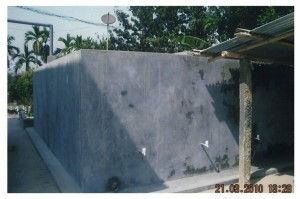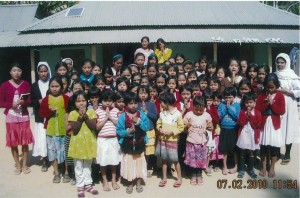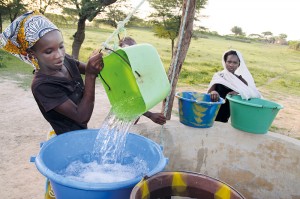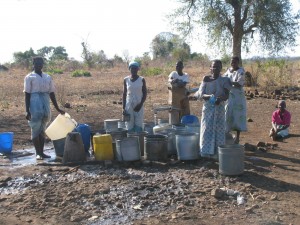WAYS TO SAVE WATER EVERY DAY Click this link Simple Ways to Save Water for the list!
How many times have you had a drink of water today? Washed your hands? Or taken a shower in a week? Many of us do not think of water as being an indulgence. It’s always there.
So, for many, it’s hard to believe that over 800 million people around the world do not have clean water to drink. As Catholics believe, every person has a right to life. Having clean water that is easy to get and always available helps children and their families all over the world to live healthier, better lives and is a part of that right to life.
Recognizing this need, the Missionary Childhood Association [MCA], one of the Pontifical Mission Societies, is there to help. With the theme, “Children helping Children,” MCA helps children and their families gain access to clean water for healthy lives.
An example of this can be seen in India. India’s huge and growing population is putting a severe strain on all of the country’s natural resources. Most water sources are contaminated by sewage and agricultural runoff. India has a great disparity of water availability across the country. Hygiene practices are also a problem in India. Only 14% of the rural population has access to a latrine. Due to the limited access to clean water in many areas, hand washing is also very low, increasing the spread of disease.

Tank to collect rain water for drinking, cooking & washing at a girls’ boarding school in the Diocese of Agartala, India
In India, where just about 2% of the population is Christian, MCA supports a large number of schools and religious education programs, including some in the Diocese of Agartala. These programs also provide hygiene education. A recent contribution of $5,000 from MCA members in the United States helped purchase uniforms, books and stationery for 120 girls who attend a boarding school run by the Sisters of Charity. The Sisters also used some of the funds to build a rainwater tank so they could provide clean, safe drinking water to their students.
“We are grateful to MCA children in the United States for helping our students,” said Sister Mary, president of the school, in a letter to our national office in New York. “We tell students that they are children of God and teach them to appreciate the richness of different cultures.”

Students and Sisters in Agartala, India now have clean drinking water thanks to MCA Members in the US
Faith formation classes are taught on Sunday and each night ends with special prayers for the children of the world. When they return home for holidays, the girls are missionaries to their own families – sharing what they have learned and reading from the Bible to their parents and siblings. They are also bringing home their good hygiene lesson.
The children in Agartala are fortunate, because in Mission lands, the lack of water often keeps children, especially girls, from attending school. For people living in the developing world, distance from a clean water source is a critical factor.
Lack of easy access to clean water affects the lives of women in particular. Collecting water in third world countries is rarely a family activity. It is a task largely designated to women and young girls. Because women are also responsible for the care of young infants and children, girls begin carrying a small version of a water jug as early as 2-years old.
In some places in sub-Saharan Africa, for instance, women and children can spend between 15 and 17 hours each week collecting water. In times of drought, it can sometimes take even longer. Adequate water supply and good health are tightly linked, and the need to carry water long distances limits the amount women can bring to their families.
The dangers are not over even once water has been brought back home to the family. Water is often contaminated with microorganisms that cause diarrhea, typhoid, and cholera. These diseases are responsible for approximately 80 percent of all illnesses and deaths in the developing world, many of them children. In fact, one child dies every eight seconds from a waterborne disease; approximately 15 million children a year.
With $6,000 from MCA members, Liwonde Parish, in the Diocese of Mzuzu, Africa drilled a well to provide 3,000 children with clean water.
Help our children help other children in water-challenged Mission areas.
Sources: www.amnh.org/exhibitions/water and www.news.nationalgeographic.com
Excerpts from Education Materials: www.water.org
Photo sources: Pontifical Mission Societies in the United States, Germany & Malawi


